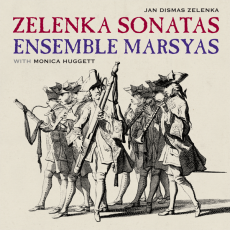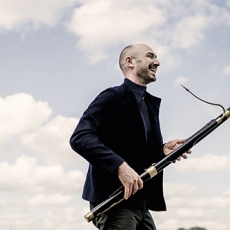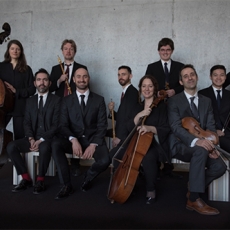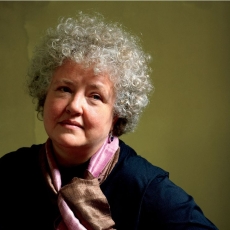Ensemble Marsyas - Zelenka - The Herald
Once upon a time in Greek mythology, there was a satyr called Marsyas who had a way with reed instruments.
One day, in an audacious stunt to impress the Muses, he decided to challenge Apollo, god of music and a mean lyre player at that, to a musical contest.
Things didn't work out so well for Marsyas. He was flayed alive and nailed to a tree, though you might have thought a double-piped reed instrument was punishment enough. But Ensemble Marsyas, a group of daredevil wind virtuosi who have taken his name, aren't letting that put them off. The newest ensemble in Scotland, destined to be one of the hottest, launches their first disc at the Lammermuir Festival this coming Sunday.
Formed in Edinburgh by Gramophone-award-winning bassoonist and Scottish Chamber Orchestra star Peter Whelan, the group is setting out to explore and champion the virtuoso wind music of the baroque and classical eras. As niche as this interest sounds, it's a group to be taken seriously. Among its members are several of the finest practitioners of historical instrument performance working in Europe today. And for their first recording of Zelenka trio sonatas they have been joined by baroque legend Monica Huggett on violin.
"Zelenka who?", you're bound to cry. Why launch an ensemble with a composer no one has heard of? But it turns out that this 18th- century Bohemian writer, Jan Dismas Zelenka, is the nemesis of the reed world. Whelan describes him as "the elephant lurking in the closet of the double-reed player - a superhuman challenge - who wrote the greatest masterpieces for our instruments."
His six sonatas for two oboes, bassoon and continuo demand a great deal from player and listener alike. It's a daunting challenge stretching across centuries that offers rich rewards. "They're extremely virtuosic, harmonically eccentric and written on a utopian scale - like a mixture of Bach, Vivaldi, and a gypsy band on acid."
In fact, JS Bach was an admirer of Zelenka's work, much of which was composed for the Dresden Court. Rather mysteriously, after he died the pieces were kept under lock and key in a casket in the Empress's closet, out of bounds to the public. Even Telemann tried to publish the collection, but failed.
There's a lot of groundless speculation about the colourful details of Zelenka's life, says Whelan. "But there is something in these works that captures the imagination, that shouts for our full attention with it's unsettling extremes, each movement plunging into a completely different sound world. The Turkish style was in vogue at the time in Dresden, and we know the musicians sometimes dressed in Turkish costume. You can hear that in the fifth sonata, which we'll play at Winton House on Sunday."
But unearthing these wild masterpieces is one thing. More critically, it might be only once in a generation that players come together who are artistically compatible as well as technically capable of playing these works. Add to those criteria a serious proficiency in historic instruments, and in Ensemble Marsyas you have the perfect storm. This hasn't escaped the notice of the critics, judges and audience at the famous Brugge International Musica Antiqua competition, where the group won both first prize and the audience prize playing Zelenka's music. And the record companies seem equally excited.
Is it important to play this old music on old instruments though? "On the instruments of the period," enthuses Whelan, "the music has a fizz and life that is just not possible to achieve on modern ones. That's why we do it. The virtuosic passages sound even more extreme, the folksy dance movements more gypsy, and the chromatic passages more blue. So even though there are challenges to overcome playing on copies of oboes and bassoons from the 18th century (there are fewer keys for example), and in choosing theorbo, violone and harpsichord for the accompaniment, it's far more rewarding than it is difficult."
Says Whelan: "Tastes in music are arguably much more conservative than they used to be, and this is something very different. These are esoteric instruments from the past, taxing themselves to the limit to play astonishing music that you've never heard of. You could call it an Olympian challenge, and we've got to meet it with just a puny piece of decaying bamboo clamped between the lips."
Linn Records have thrown their weight behind the musical contest. And after their heroics at Lammermuir, there is a list of prestigious festivals across Europe at which Ensemble Marsyas will be appearing in the future. So I expect after all they're going to do better than that satyr.



